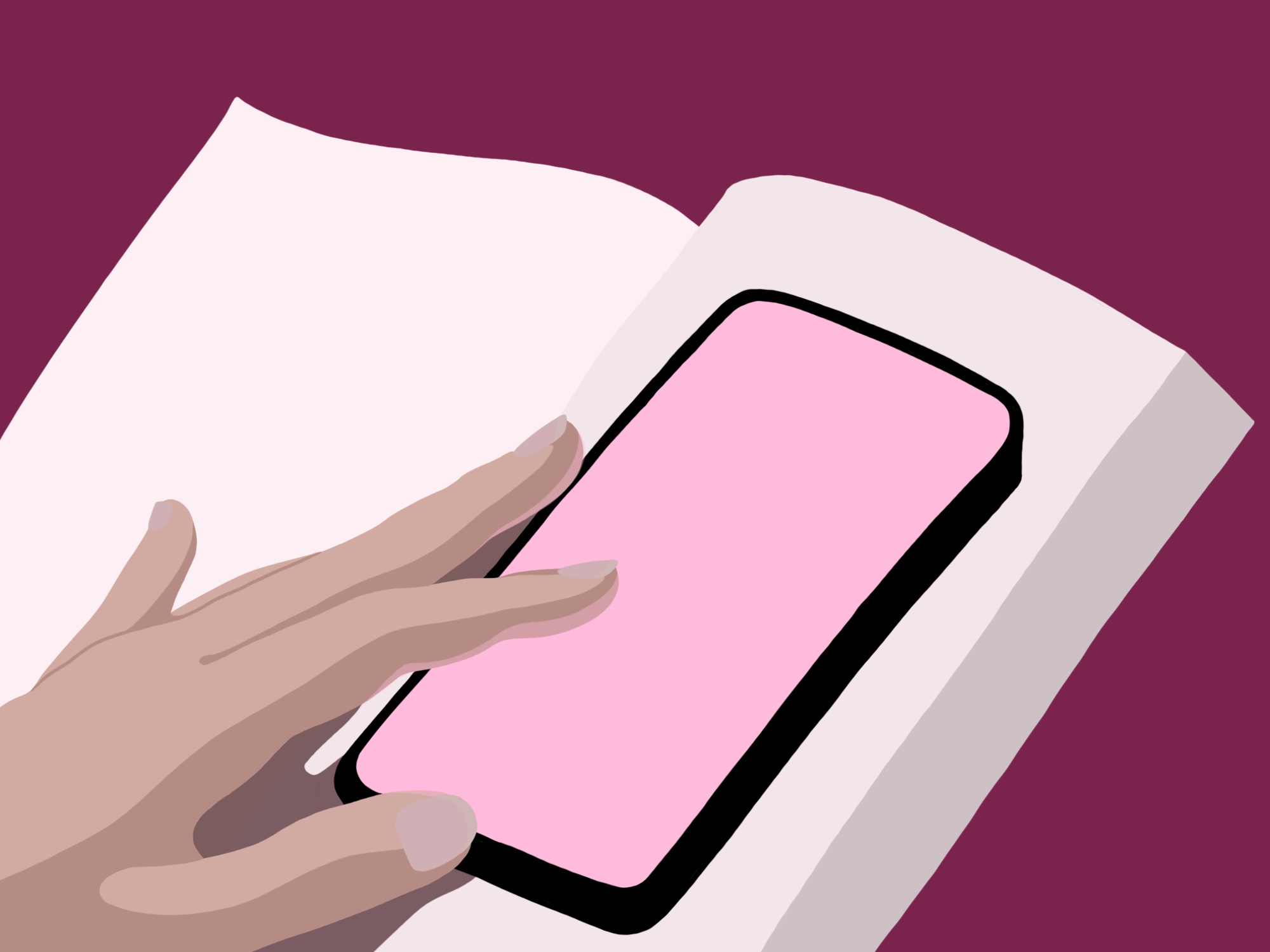Generation Z’s attention span is fried.
To us, 30 minutes of reading feels like an impossible task. Yet, 30 minutes spent scrolling through TikTok feels like three seconds.
The popularity of digital media, especially short-form content, has deterred our generation from reading — and deprived us of not only the enjoyment we can derive from it but also the various health benefits it brings.

Reading is not just a form of entertainment — it also expands our vocabulary, makes us better writers and educates us about the range of perspectives of people around us. It’s also essential to improving our overall well-being.
For example, the well-known health challenge “75 Hard” includes doing two workouts, drinking a gallon of water and consuming no “cheat meals” or alcohol daily for 75 consecutive days. But it also includes reading 10 pages of a book every day for oneself.
Reading is known to reap health benefits. A 2016 study by the National Library of Medicine found those who read books for an average of 30 minutes per day showed a “survival advantage,” compared to those who did not read books.
Yet many of us can’t find those 30 minutes lying around.
With how overwhelming student life can get, it is difficult to find time and — more importantly — energy to pick up a book.
Because of all the readings that go towards our courses, it’s easy to associate reading with work — deterring us from reading for enjoyment. Doomscrolling on social media seems like the only comfortable option after an exhausting day of lectures, textbook chapters and group projects.
Thus, after exhausting days filled with academic reading for our classes, reading a long-form book, even one that has stricken our interest, feels repetitive and unappealing.
It’s not as though our generation doesn’t want to read — it just feels as though the little free time we have during the academic year is not worth going towards reading novels.
That’s why we find solace in summer and winter breaks: we finally have time to settle down and get through a book without distractions, and fully immerse ourselves in a story.
We look forward to those extended pockets of time where we can read for pleasure — it’s the type of content we often don’t have or can’t make time for in our day-to-day lives.
Of course, it’s hard to make time for hobbies like reading when school-work-life balance is already so difficult. But take a look at your iPhone’s Screen Time when you have the chance — it’s likely that between TikTok, Instagram and Snapchat alone, there are plenty of minutes in the day that you could instead delegate towards consuming more enriching content offline.
How many moments of your day can be spent reading? Your train ride to class, the line at Einstein Bros. Bagels or the downtime in your dorm that you’d normally spend on social media are a few options.
Part of encouraging putting down our screens in favor of a book is defeating the stigma that comes with the content we consume — especially in an age where attention is not on reading long-form content in the first place.
Historical associations of reading with elitism have and will only drive people further away from the activity. You don’t have to trudge your way through “War and Peace” to make reading a meaningful part of your life. Short stories in the New Yorker, young adult fantasy series or even fluffy romances recommended by the “BookTok community” are all reading mediums that can certainly be more fulfilling than screen time.
As is the case with any other healthy habit, reading shouldn’t be lost in our daily routines. Like training to hit a personal record in the gym or buying a water bottle to track your daily consumption, reading is a habit we can all build — not just for developing mental clarity but for our own enjoyment and personal growth.
This Editorial was written by Opinion Co-Editor Lea Rivel.




















































































































